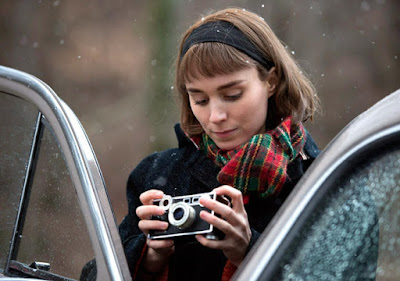The theme music by Carter Burwell is fantastic. I have to mention Brief Encounter again as the whole use of such grand, powerful music to convey such a small, intimate story really works wonders. Not to raise it all on a pedestal, that's not the point, but rather to show the intensity of feeling. In the lone two sex scenes the climax is reached in alignment with the musical equivalent; what could've come across as gratuitous is just so naturally built up to by the audio-visual accompaniments of this masterpiece that it feels both natural, and so disarmingly beautiful. There is a certain ease to the lovemaking that may not have been felt had the characters been thrust together too quickly or too soon. The passion is well-earnt, so to speak.
Lastly as a short footnote, please watch Bridge of Spies everyone. It's definitely the best Speilberg film I've seen in a while (and I liked Lincoln a great deal). Just the right balance of tension, thrills, and even humour throughout and even though, technically speaking it's another Cold War thriller but Speilberg's direction is superb, the dramatic scenes are very well handled, it flows incredibly well and was just a great entertaining watch.
And Mark Rylance is as great as advertised. The beauty of Rudolf Abel as a character is just how enigmatic he remains throughout and who, when played against Hanks' more straightforward but no less excellent performance as James Donovan, makes for genuine movie magic. There's that underlying threat to the character through the intelligence Rylance portrays just through his presence, and yet there's also an inviting warmth to his coldness too, paradoxical as it sounds. He can be both affably amusing and disarmingly moving in the same scene. If I had one complaint about the film it'd be there's simply not enough of him but I nitpick; to me this performance is not unlike Anthony Hopkins' in Silence of the Lambs (and not just because the way they stand in prison verges upon similarity). With little screentime, such a large impact is made so as to make the character's presence felt throughout the film even if he's not being talked about. I think I have a new Best Supporting Actor win for this performance which takes Rylance's strengths as a stage actor and subtle screen actor, and moulds it into a character you can never quite get the hang of, but want to follow nevertheless.
filmicfilly.wordpress.com
finalreel.co.uk



No comments:
Post a Comment